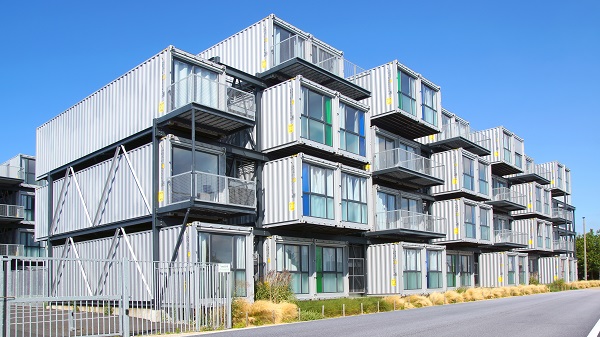Find Out About Modular Buildings And Their Contribution To Humanity
If you want to know what the future looks like, look no further than modular construction. Modular construction companies work with sophisticated levels of design and construction compared to buildings constructed on-site.
Modular construction is prefabricated construction where a building is constructed away from the construction site under controlled conditions. These buildings use the same designs, materials, and codes as standard conventional construction; however, they are built in less time.
This type of construction is called modular construction because buildings are produced off-site in modules. Once sealed, the modules become one integrated wall, floor, and roof assembly. Modular buildings are generally structurally stronger than construction on-site because each module is engineered to withstand the rigorous transportation and crane onto foundations.
Building off-site ensures better construction quality management as industry standards mandate that manufacturing plants have strict QA/QC programs. In addition to conforming to industry standards, there are independent inspections and testing protocols.

Types of Modular Buildings
There are different types of modular buildings that use the same standards and codes but serve different purposes:
Permanent Modular Construction
Permanent Modular Construction (PMC) is a construction method that uses manufacturing techniques offsite to create buildings that are delivered in module sections.
PMC modules can be integrated into projects or stand-alone. They can be provided with fixtures and interior finishes with less waste and in less time. They are also supplied with higher quality control compared to site-built construction.
Relocatable Buildings
A Relocatable Building (RB) is a building that is partially or completely assembled. RBs comply with state regulations and codes and are constructed using a modular construction process. RBs are designed to have multiple uses and purposes, and they can be transported to different building sites.
The most common uses for relocatable buildings include schools, construction site offices, medical clinics, and any application needing temporary space.
Top 8 Benefits of Modular Construction
Modular construction offers fast, cost-effective, and efficient construction solutions. Modular construction offers numerous other benefits to owners, such as quality management and improved completion time. This type of construction removes approximately 80% of the building construction activity from the site location. As a result, site disruption and vehicular traffic are minimized while improving overall safety and security. There is a need for reduced on-site activity and offsite construction in highly active businesses such as education and healthcare markets. Modular construction eliminates many construction hazards, which is extremely advantageous when building new projects.
Modular construction reduces waste through avoidance upstream rather than diversion downstream because buildings are constructed in a controlled environment. Another factor that inherently promotes sustainability is improved quality management and significantly less on-site activity and disturbance. Modular construction offers a high-quality, sustainable, innovative, efficient, cost-effective product and a shorter completion time. Modular building processes are revolutionary, and they are changing how we construct buildings
1. Speed of build
Modular building projects can be completed in about half the time it takes when using traditional construction methods. The indoor construction process can occur alongside site and foundation work, and weather delays are not a concern.
2. Eco-Friendly Materials
Modular buildings are environmentally friendly. They are built with sustainable building materials and are ahead of the curb using recycled materials. The process of off-site construction also uses less waste.
3. Cost-effective
Modular construction is very cost-effective. Flexible payment options are available in addition to a shorter construction time. In addition, the design service is often included, so you don’t need to factor in architect costs on top of building expenses.
4. Attractive design
Modular buildings are an extremely attractive addition to your school, business, or residential property, thanks to an innovative and practical design that uses the best quality sustainable building materials.
5. Bespoke options available
Modular buildings are built with bespoke design. This is one of the main advantages of building modular construction because each building is tailored to specific needs. Buildings can be custom-tailored to fit a specific space or budget requirements.
6. Flexibility of use
Modular buildings are extremely flexible due to their bespoke design. Modular buildings can meet your requirements with the perfect flexible extra space whether you need extra space for a garden room, office, studio, school classroom, or music room.
7. High-quality construction
Building materials are protected from weather, moisture, and other adverse conditions during the construction process. In addition, due to the nature of indoor construction, quality and safety are guaranteed.
8. Durable materials
Modular buildings are constructed with extremely durable building materials to ensure that the building will last. In addition, specific materials are used for internal walls to improve sound insulation and fire-proofing. The building materials also make modular building structures extremely airtight, which ensures their energy efficiency.
For more than 60 years, Reef Industries has been manufacturing and fabricating reinforced film laminates and composites. Our expertise in producing quality, custom-configured final products ensures our customers’ needs are always met quickly and professionally. We offer a wide range of products, material grades, additives, and fabrication capabilities to meet or exceed your requirements. Impulse, wedge, or hot air welding is utilized to optimize the fabrication technique that is best suited to produce your uniquely configured and fabricated product.

